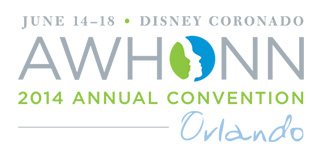Skin Rounds -- A Standardized Approach To Pressure Injury Detection and Reporting In The Neonatal Intensive Care Unit
Title: Skin Rounds -- A Standardized Approach To Pressure Injury Detection and Reporting In The Neonatal Intensive Care Unit
- Outline the steps for standardizing neonatal skin care through the implementation of weekly skin rounds.
- Describe the effect of weekly skin rounds on the detection and reporting of pressure injuries.
- Identify the implications of standardized skin rounds for nursing practice and neonatal skin care.
Avoiding skin injury is critical to optimizing outcomes in hospitalized patients. High rates of pressure injuries have been reported among patients in pediatric and adult intensive care units (ICUs), but little data on incidence or prevention is available for neonatal ICU patients. The aim of this quality improvement program is to standardize the skin care of patients in our NICU.
Proposed change:
An interdisciplinary team was formed in an acute care, level IIIC, all referral NICU. This team is responsible for rounding weekly on patients to assess for and document skin injuries, collect demographic information, and provide education to bedside caregivers and provide recommendations for skin care.
Implementation, outcomes and evaluation:
The team underwent standardized training over a 4-week period to detect and stage pressure injuries. Weekly skin rounds began in July 2011. Initial staff resistance to the change in routine was overcome by education via in-services and self-studies on skin injury prevention; this led to a gradual shift in perception and skin rounds are now an accepted routine. There was also tremendous support from administration and nursing, respiratory, and medical leadership, which helped integrate skin rounds into the unit culture.
Between July 2011-August 2013, the skin injury team rounded on a median of 47 patients/week for 100 weeks, for a total of 4672 patient assessments. The overall incidence of Stage II or greater pressure injuries was 2.79 injuries per 1000 patient days. Stage II pressure injuries accounted for 64.5% of the injuries assessed. Stage III accounted for 2.8% of the injuries. Suspected deep tissue injuries accounted for 21.5% of the injuries. Unstageable injuries accounted for 3.7% of the injuries. Mucosal injuries accounted for 7.5%. There were no Stage IV pressure injuries detected. The greatest cause of pressure injuries was respiratory devices, followed by immobility. The incidence of pressure injuries after the formation of the unit-based skin team increased significantly from a baseline of 0.49 injuries per 1000 patient days, demonstrating an improved detection of injuries with standardized skin rounds.
Implications for nursing practice:
We have created what we believe is the largest database of skin injury in neonatal ICU care, by means of an interdisciplinary team focused on skin injury prevention, education, and regular skin assessments of all infants. This database provides a stable platform upon which to build and measure prevention strategies. This skin care approach could serve as a model for other institutions.
Keywords: pressure ulcer, skin injury, neonate
